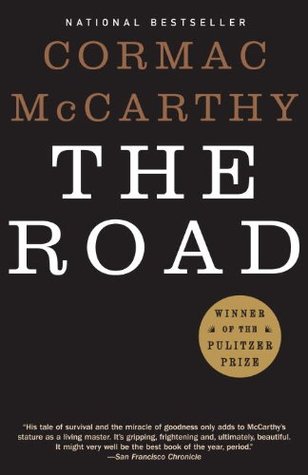An unnamed father and his son walk through a dystopic America, traveling to a coast in the hopes of warmer weather. The journey is often empty except for the occasional wild dog or rotting corpse. Every encounter with another human is a chance to lose everything they own — the pistol, the cart of scavenged food, and the blankets on their backs.
This is my first Cormac McCarthy, and it deserves the hype. I am in awe of this deeply personal novel of dark, desperate survival in a world of corpses and ash. I classify The Road as both a modern classic and as scifi, although the former is more suitable. The plot is not unique, in many ways it’s well-worn, but the execution of the story is effective in it’s portrayal of the dichotomy of love and sacrifice and violence and beauty.
One reviewer referred to the “ostentatiously empty style”, but the language in this post-apocalyptic scifi embodies a world that has lost a love for language and culture; a world in which normal men describe an extra-ordinary world with commonplace words, which for me translates as beautiful and tragic and with purpose. Dialogue quotes are missing. Sentences with verbs are not mandatory. Contractions have no apostrophes. In addition, McCarthy’s prose is simultaneously described as straightforward to the extreme of boredom and overly florid to the point of pointless, but again, the contrast of third person descriptions of the mundane together with poignant poetical observations reflect the external verbal world and the inner monologue of a traumatized person. This book is a a contemplation on the reverence for the smallest bits of life, often more poetry than prose. As a piece of literary fiction, The Road breaks a lot of rules, but it works.
There is very little joy or hope in this book. I read it in small increments, and each time I was sucked into a harsh world of unending pain and cruelty. It is a difficult book to read. It’s a world of black and gray. But it’s lovely too.
Recommended as a gateway for readers of literary fiction into science fiction. This is only the beginning!
“The blackness he woke to on those nights was sightless and impenetrable. A blackness to hurt your ears with listening. Often he had to get up. No sound but the wind in the bare blackened trees. He rose and stood tottering in that cold autistic dark with his arms outheld for balance while the vestibular calculations in his skull cranked out their reckonings. An old chronicle.”
